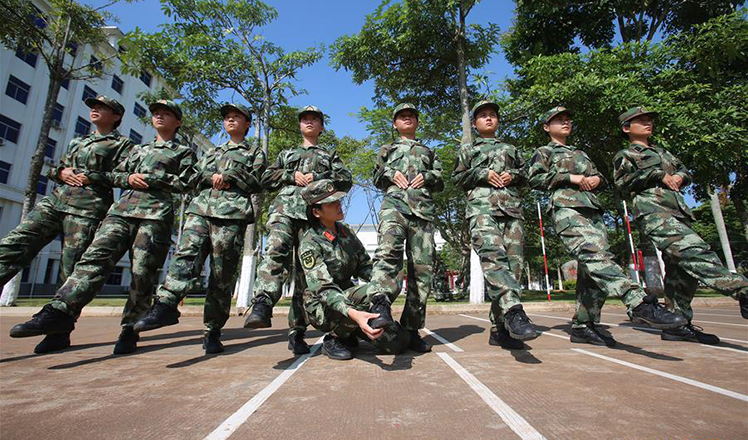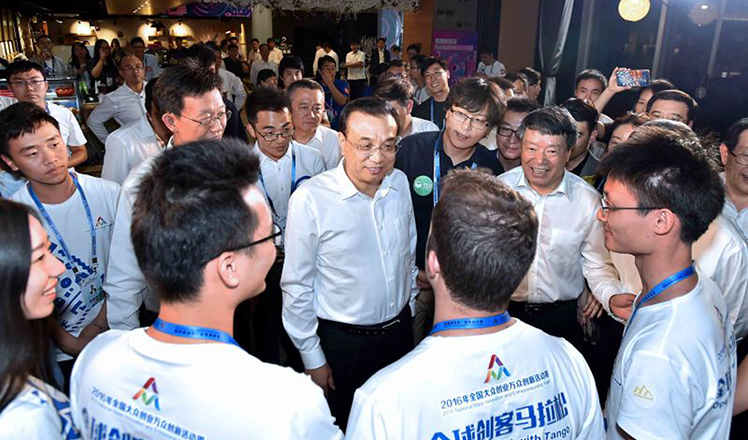US Treasury rules out China as a currency manipulator
Updated: 2016-10-15 17:02
(Xinhua)
|
||||||||
WASHINGTON - US Treasury Department on Friday declared that no major trading partner of the US, including China, met the standard of manipulating its currency, while it retained six economies on a monitoring list created to indicate "unfair" currency practices.
In its Semi-Annual Report to Congress on International Economic and Exchange Rate Policies, the department said none of its major trading partners has manipulated their currencies over the past six months to keep them undervalued.
However, it still puts Chinese mainland, Japan, South Korea, China's Taiwan, Germany, and Switzerland on its Monitoring List, saying their foreign exchange policies bear close monitoring.
The Treasury Department created the list in April this year based on an analysis of three criteria, including a significant bilateral trade surplus with the US, a material current account surplus and engaging in persistent one-sided intervention in the foreign exchange market.
In the report, the department said that China met one of the criteria, a significant bilateral trade surplus with the US, instead of two as indicated in April's report.
The latest report explained that China's current account surplus fell to 2 percent of GDP in the first half of this year, moving below the established threshold for the criterion that current account surpluses in excess of 3 percent of GDP can be regarded as "material."
The other five economies met two of the three criteria each.
China's central bank has improved its communication on its exchange rate policy with the market since early this year and has taken measures to deal with the depreciation of its currency the renminbi, said the report.
It noted that core factors that have been supportive of the yuan remain in place, including high savings, a sizeable current account surplus, and GDP growth above the global average.
China's central bank governor Zhou Xiaochuan recently said in Washington that China will continue to enhance exchange rate flexibility while maintaining a relatively stable exchange rate. He added that China will firmly continue market-oriented reforms of its exchange rate mechanism.
C. Fred Bergsten, senior fellow at the Peterson Institute for International Economics, recently said at a forum that China does not manipulate its currency.
He noted that the Chinese economy is still growing at a relatively rapid pace, poses a high savings ratio and has significant amount of foreign reserves. All of these could support a relatively strong yuan, he added.
- Hollande, Merkel, Putin discuss how to implement Minsk peace deal
- Pentagon vows to respond to attempted missile attacks at US destroyer near Yemen
- NASA to invite private companies to install modules on space station
- Trump accused of inappropriate touching by two women
- White House denounces terror attacks in Afghanistan
- Republican voters frown on party establishment's criticism of Donald Trump

 Birthday celebration held for panda cubs at Toronto Zoo
Birthday celebration held for panda cubs at Toronto Zoo
 China's top 10 enterprises by revenue in 2015
China's top 10 enterprises by revenue in 2015
 Robots, 3D printed food big hit at Shenzhen Maker Week
Robots, 3D printed food big hit at Shenzhen Maker Week
 Flying over the mountains in wingsuit in Zhangjiajie
Flying over the mountains in wingsuit in Zhangjiajie
 Ten photos from around China: Oct 7-13
Ten photos from around China: Oct 7-13
 Superheroes make surprise visit to children's hospital
Superheroes make surprise visit to children's hospital
 Female soldiers take training in Hainan
Female soldiers take training in Hainan
 Premier Li vows anew to ease market access
Premier Li vows anew to ease market access
Most Viewed
Editor's Picks

|

|

|

|

|

|
Today's Top News
Trump outlines anti-terror plan, proposing extreme vetting for immigrants
Phelps puts spotlight on cupping
US launches airstrikes against IS targets in Libya's Sirte
Ministry slams US-Korean THAAD deployment
Two police officers shot at protest in Dallas
Abe's blame game reveals his policies failing to get results
Ending wildlife trafficking must be policy priority in Asia
Effects of supply-side reform take time to be seen
US Weekly

|

|







